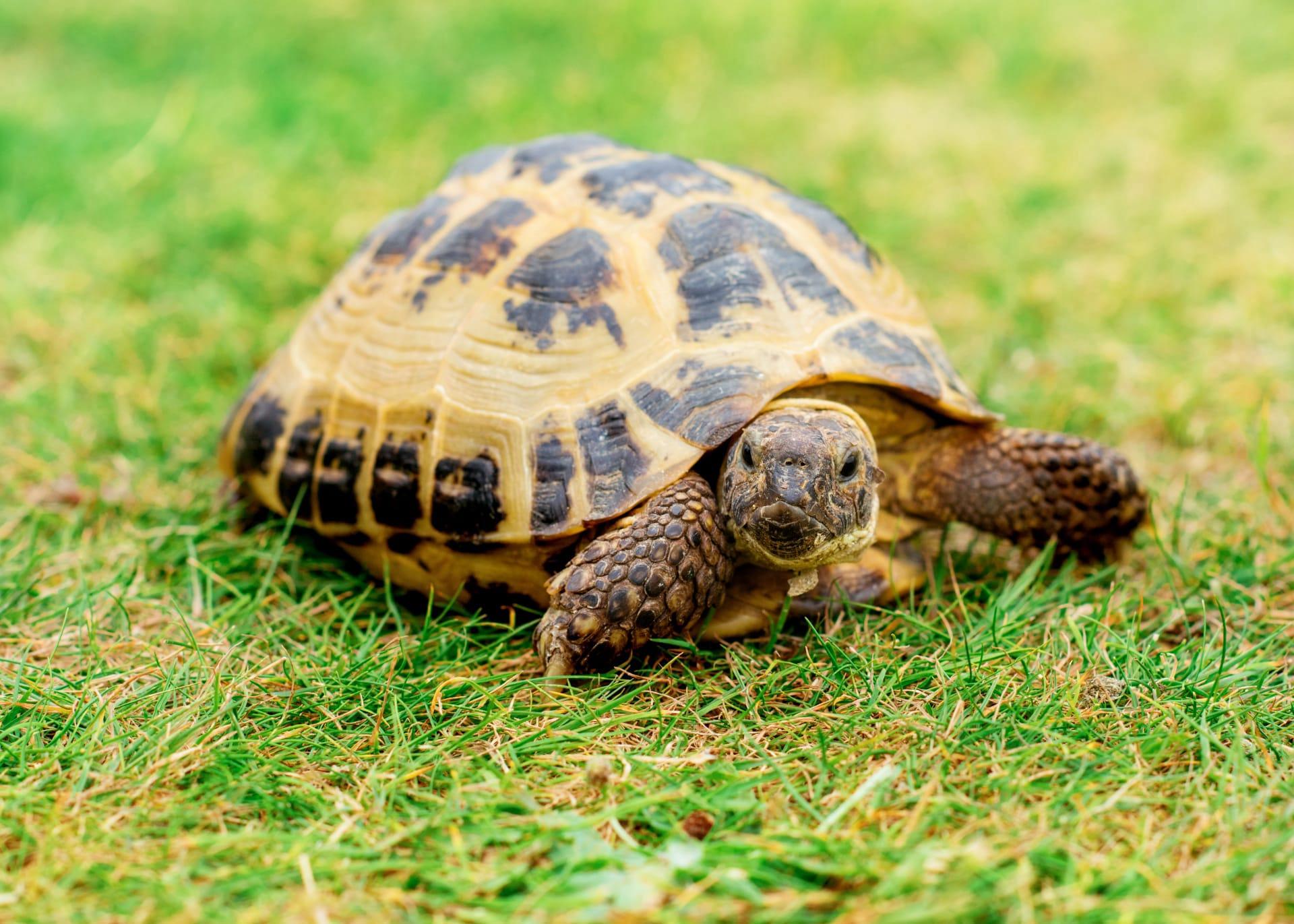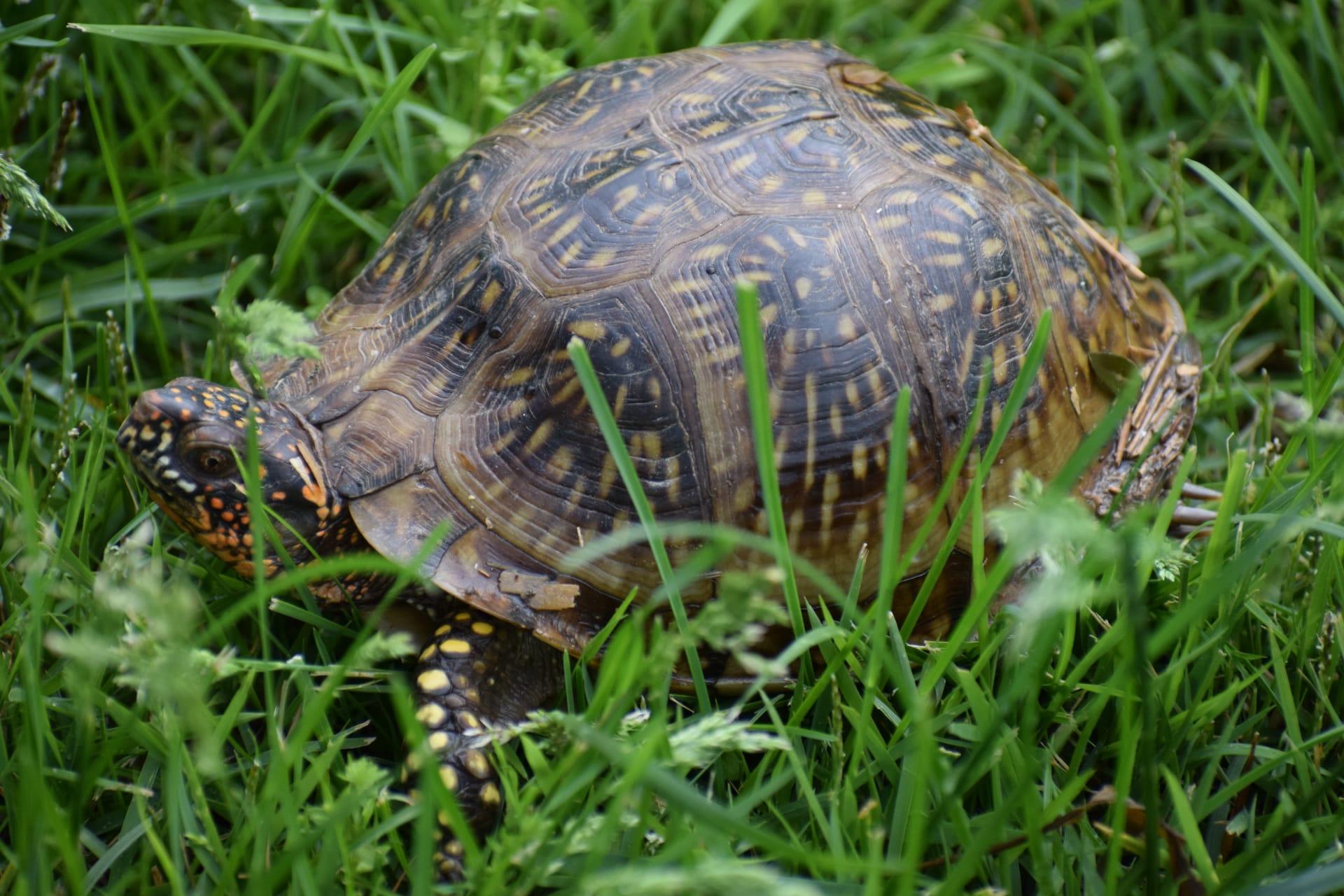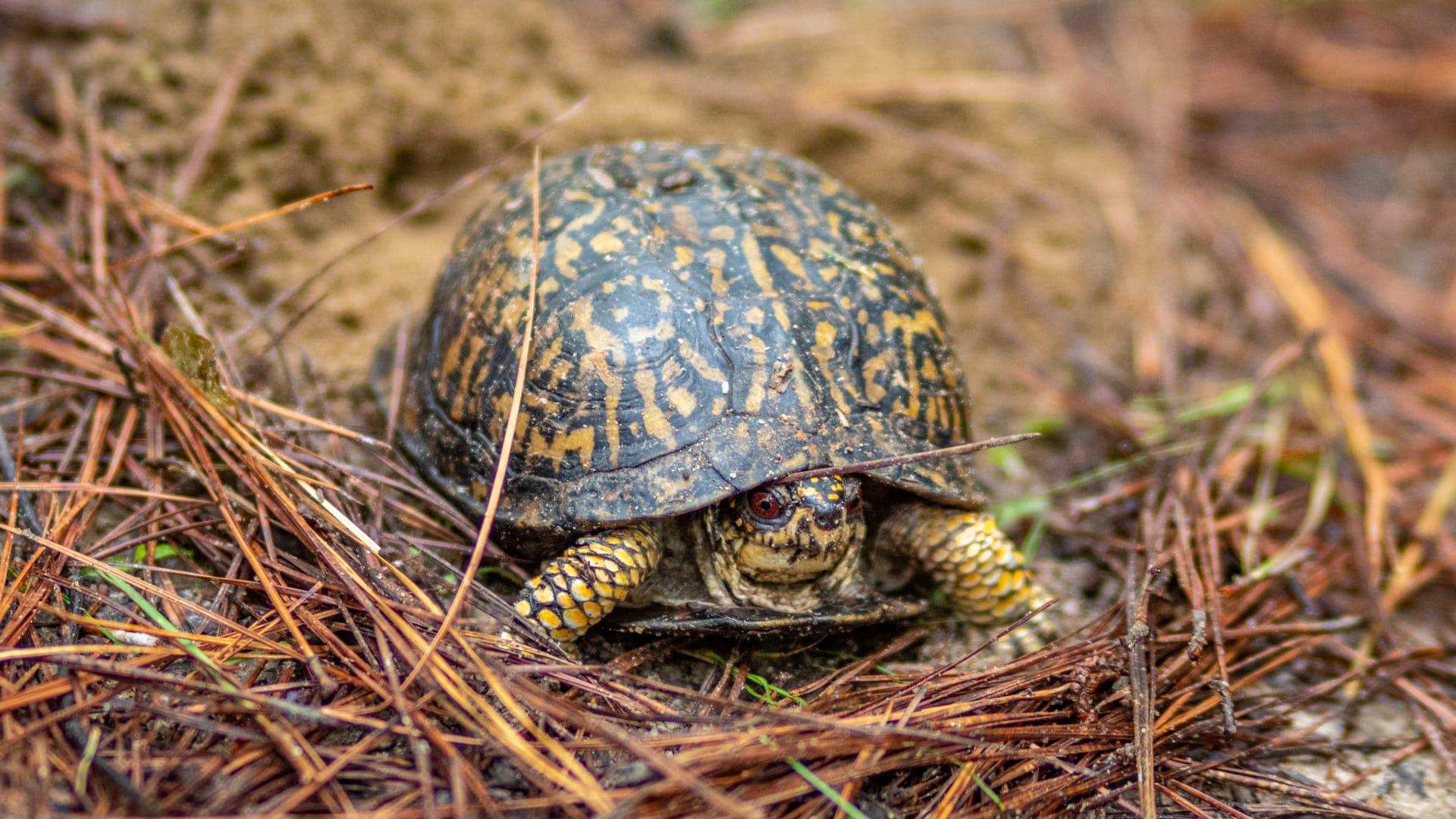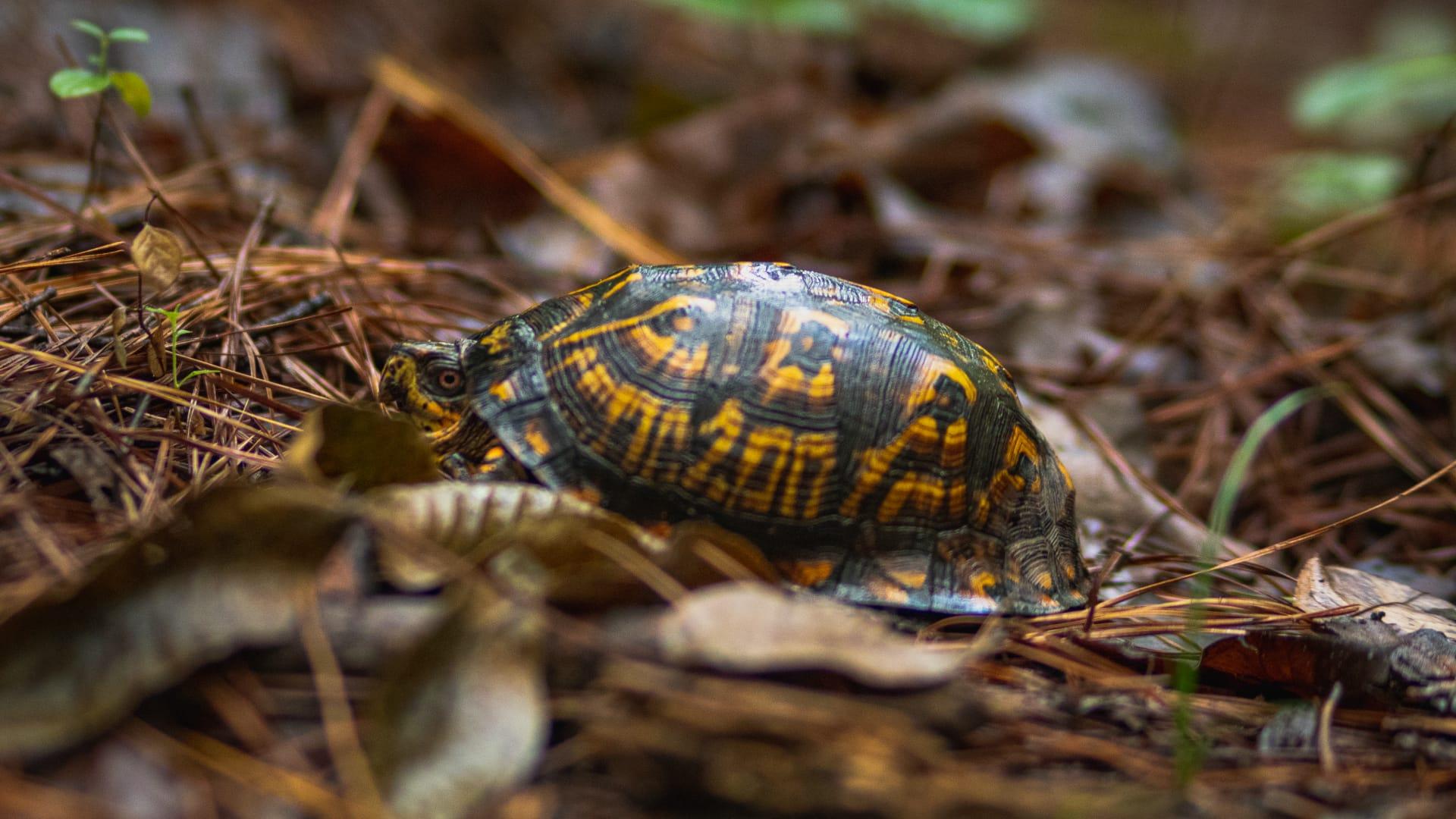Box Tortoise Trivia
- Home /
- Trivia Question /
- Animal /
- Box Tortoise Trivia
1
Question: How long can box tortoises live, and does their environment affect their lifespan?
Answer: Box tortoises are known for their impressive longevity. In the wild, they can live for 50 years or more, with some even reaching the ripe old age of 100! Their lifespan is significantly influenced by their environment. Factors like habitat quality, availability of food, and predation pressure play crucial roles. In captivity, with proper care and a well-maintained environment, they often surpass their wild counterparts in terms of lifespan.
Question: What do box tortoises typically eat, and how does their diet vary with age?
Answer: Box tortoises are primarily herbivores, munching on a variety of grasses, flowers, and fruits. Young tortoises tend to eat more animal-based food, like worms and insects, providing them with extra protein for growth. As they age, their diet shifts more towards plants. An adult tortoise's diet is about 80% vegetation, which is vital for their health, helping to prevent obesity and shell problems.

2
Question: Is it true that box tortoises can't swim and therefore should be kept away from water?
Answer: This is a common misconception. While box tortoises are not aquatic and don't swim like turtles, they do require access to shallow water for hydration and to help them regulate their body temperature. A shallow water dish, where they can easily climb in and out, is essential in their habitat for drinking and occasional soaking.
Question: Can box tortoises feel through their shells?
Answer: Yes, they can! Their shells are not just armor; they're a living part of the tortoise, containing nerve endings. Therefore, they can feel pressure and touch through their shell. This is why gentle handling is important, and why they often react when their shell is touched or scratched.

3
Question: How do box tortoises hibernate, and what conditions are needed for them to hibernate safely?
Answer: Box tortoises hibernate during the colder months to conserve energy. They need a cool, but not freezing, environment with low humidity to hibernate properly, ideally between 50-60°F (10-15°C). During hibernation, they slow down their metabolism and may not eat for months, relying on stored energy reserves.
Question: What are the main threats to the survival of box tortoises in the wild?
Answer: The major threats include habitat destruction, road mortality, and predation. Habitat destruction from urbanization and agriculture reduces their living space and food sources. Roads are hazardous as many tortoises are hit by vehicles. Additionally, predators like raccoons, dogs, and birds of prey can be a significant threat, especially to the young and eggs.

4
Question: How do box tortoises communicate with each other?
Answer: Box tortoises are not very vocal, but they do communicate through a range of physical behaviors and postures. For instance, male tortoises may bob their heads to assert dominance or during courtship. They also use touch, like nuzzling or shell ramming, as a form of interaction, especially during mating rituals.
Question: Can box tortoises climb, and how does this ability benefit them?
Answer: Surprisingly, box tortoises are quite capable climbers. They can climb over obstacles like rocks and logs in their environment. This ability helps them explore their habitat, escape threats, and sometimes even find new food sources. However, their climbing endeavors can be risky, so it's important to ensure their captive environment is safe and escape-proof.

5
Question: Do box tortoises have good eyesight, and how do they use it?
Answer: Box tortoises have reasonably good eyesight, particularly adapted to detect movement. They rely on their vision to find food, identify potential threats, and navigate their environment. Their eyes can distinguish different colors, which is beneficial when searching for various fruits and flowers to eat.
Question: How important is temperature regulation for box tortoises, and how do they achieve it?
Answer: Temperature regulation is crucial for box tortoises. They are ectothermic, meaning they rely on external sources of heat to regulate their body temperature. They bask in the sun to warm up and may burrow into the ground or find shade to cool down. In captivity, providing a heat source and areas with different temperatures is essential for their well-being.